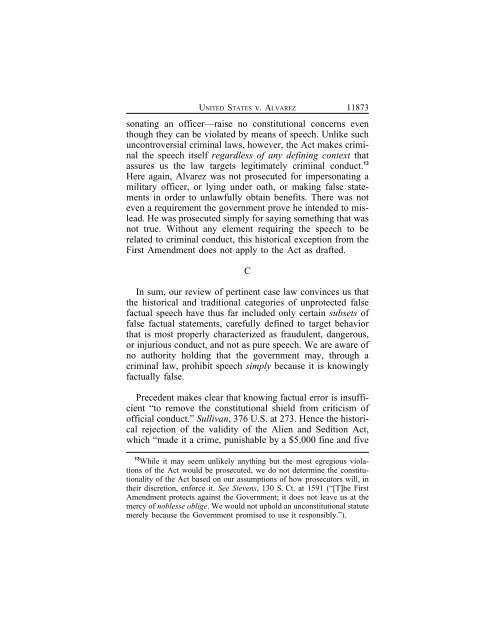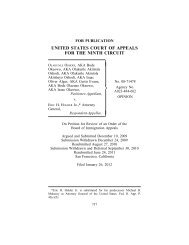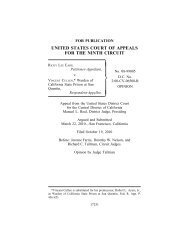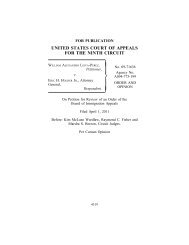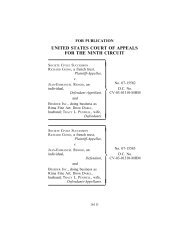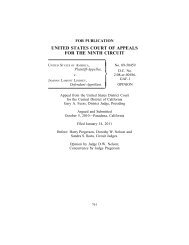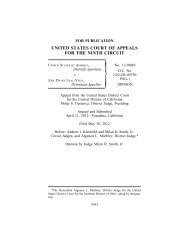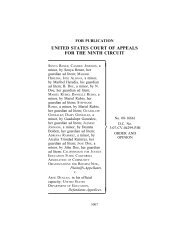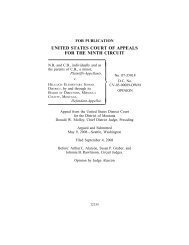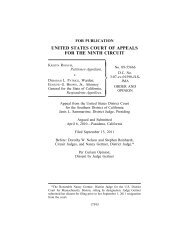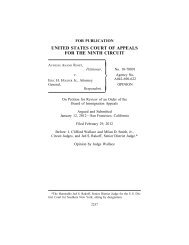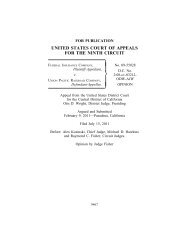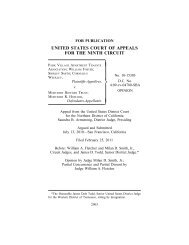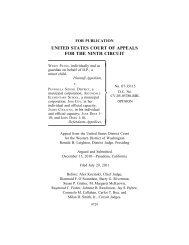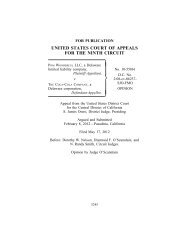USA v. Xavier Alvarez - Ninth Circuit Court of Appeals
USA v. Xavier Alvarez - Ninth Circuit Court of Appeals
USA v. Xavier Alvarez - Ninth Circuit Court of Appeals
You also want an ePaper? Increase the reach of your titles
YUMPU automatically turns print PDFs into web optimized ePapers that Google loves.
UNITED STATES v. ALVAREZ<br />
sonating an <strong>of</strong>ficer—raise no constitutional concerns even<br />
though they can be violated by means <strong>of</strong> speech. Unlike such<br />
uncontroversial criminal laws, however, the Act makes criminal<br />
the speech itself regardless <strong>of</strong> any defining context that<br />
assures us the law targets legitimately criminal conduct. 13<br />
Here again, <strong>Alvarez</strong> was not prosecuted for impersonating a<br />
military <strong>of</strong>ficer, or lying under oath, or making false statements<br />
in order to unlawfully obtain benefits. There was not<br />
even a requirement the government prove he intended to mislead.<br />
He was prosecuted simply for saying something that was<br />
not true. Without any element requiring the speech to be<br />
related to criminal conduct, this historical exception from the<br />
First Amendment does not apply to the Act as drafted.<br />
C<br />
11873<br />
In sum, our review <strong>of</strong> pertinent case law convinces us that<br />
the historical and traditional categories <strong>of</strong> unprotected false<br />
factual speech have thus far included only certain subsets <strong>of</strong><br />
false factual statements, carefully defined to target behavior<br />
that is most properly characterized as fraudulent, dangerous,<br />
or injurious conduct, and not as pure speech. We are aware <strong>of</strong><br />
no authority holding that the government may, through a<br />
criminal law, prohibit speech simply because it is knowingly<br />
factually false.<br />
Precedent makes clear that knowing factual error is insufficient<br />
“to remove the constitutional shield from criticism <strong>of</strong><br />
<strong>of</strong>ficial conduct.” Sullivan, 376 U.S. at 273. Hence the historical<br />
rejection <strong>of</strong> the validity <strong>of</strong> the Alien and Sedition Act,<br />
which “made it a crime, punishable by a $5,000 fine and five<br />
13 While it may seem unlikely anything but the most egregious violations<br />
<strong>of</strong> the Act would be prosecuted, we do not determine the constitutionality<br />
<strong>of</strong> the Act based on our assumptions <strong>of</strong> how prosecutors will, in<br />
their discretion, enforce it. See Stevens, 130 S. Ct. at 1591 (“[T]he First<br />
Amendment protects against the Government; it does not leave us at the<br />
mercy <strong>of</strong> noblesse oblige. We would not uphold an unconstitutional statute<br />
merely because the Government promised to use it responsibly.”).


